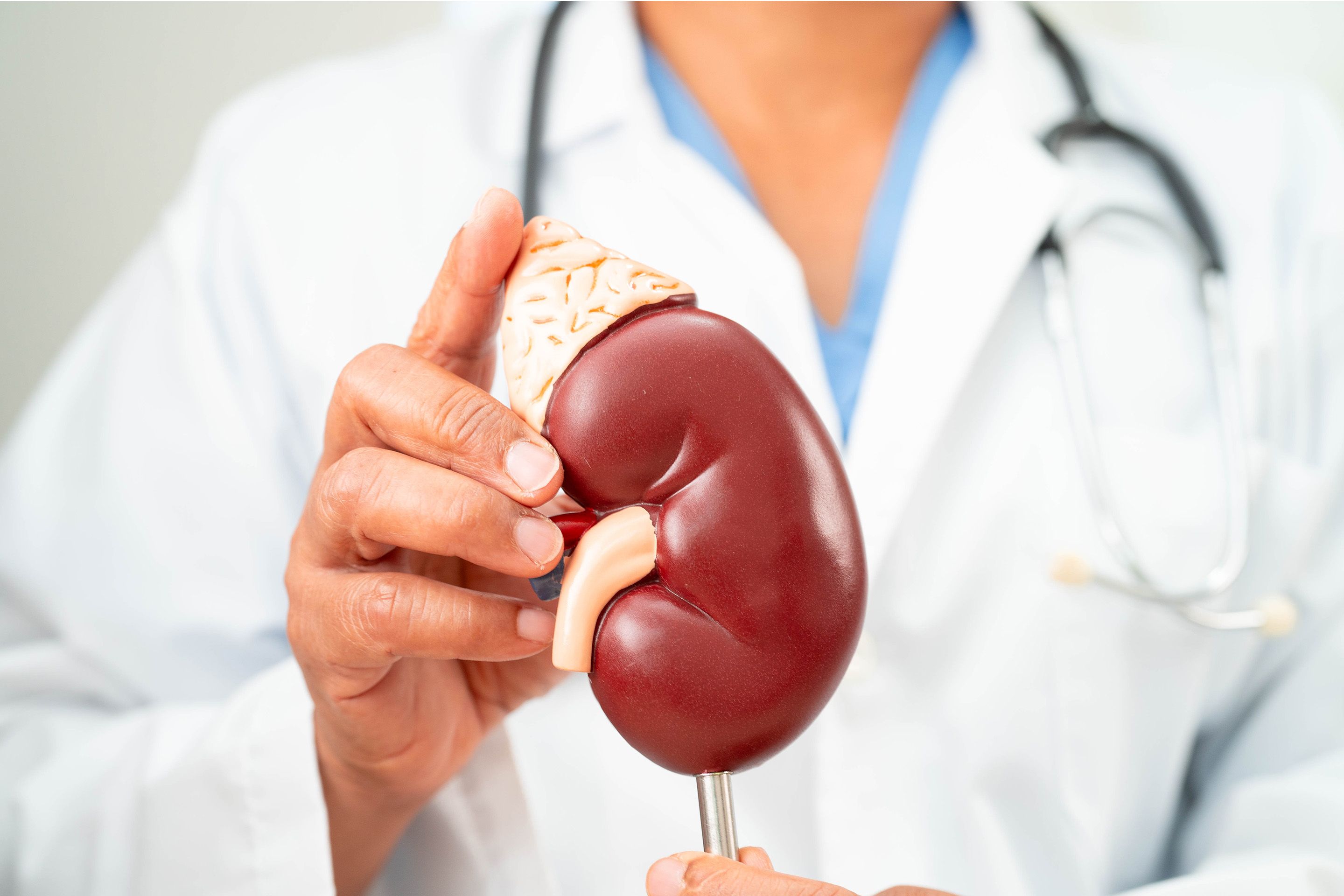Chronic kidney disease – a global health crisis
- Scientific news
- Medicine
- Science

Every year, 1.2 million people worldwide die as a result of chronic kidney disease. The condition is set to become the world’s fifth leading cause of death by 2040. However, preventive screening programmes for high-risk groups, including people with diabetes, high blood pressure or cardiovascular diseases, should help to reverse this trend. In addition, medications such as SGLT2 inhibitors can slow the progression of the disease considerably – in some cases by as much as 17 years. These and other advances in kidney health will be on the agenda at the international European Renal Association (ERA) Congress, which is taking place at the Austria Center Vienna from 4-7 June.
“More than 10% of the world’s population are affected by chronic kidney disease. This is equivalent to between 800,000 and 970,000 people in Austria alone. The major problem is that renal insufficiency develops very gradually, and sufferers remain pain-free for a long time, so they only begin to feel symptoms when it is almost too late. Alarmingly, the WHO predicts that chronic kidney disease is set to become the fifth most common cause of death worldwide by 2040. We want to counter this by raising awareness of kidney health, and through targeted prevention programmes for high-risk groups – because chronic kidney disease can actually be diagnosed very easily. Highly effective drugs are now also available, which can significantly slow the progression of kidney disease, enabling patients to continue leading their lives for many years without the need for dialysis,” explains Prof. Kathrin Eller, 1st Deputy Director of the Division of Nephrology at the Medical University of Graz, and Secretary of the ERA Congress.
Preventive screening aimed at significantly reducing mortality
“There are currently 970,000 people suffering from chronic kidney disease in Austria, while 10,000 patients require kidney replacement therapy, or KRT. This difference is explained by the fact that many sufferers die before they need KRT,” Eller emphasises. The WHO predicts that the number of people around the world who will die as a direct result of chronic kidney disease will increase from the current 1.2 million to 4 million by 2040. “Many patients succumb primarily to cardiovascular diseases because the heart mirrors the condition of the kidneys to a degree. Early-recognition programmes for at-risk groups could substantially reduce mortality,” she adds. This is because around 20-40% of people with diabetes, more than 20% of hypertension sufferers and half of all heart failure patients are also affected by chronic kidney problems. At the moment, only people with diabetes are screened for kidney disease, so extending these programmes to cover patients with high blood pressure and cardiovascular disease, as well as gradually including people with certain autoimmune conditions, obesity sufferers and cancer patients who undergo chemotherapy as part of their treatment, would be highly beneficial. Experts from the USA are even recommending screening for the entire population.
Blood and urine samples – secure and simple diagnostic tools
“Blood and urine tests can be used to quickly determine whether a patient is suffering from chronic kidney disease. Creatinine levels in the blood serve as a marker for assessing how well the kidneys are functioning. And urine samples are tested to establish whether the protein albumin is present, and in what quantities,” says Eller. Patients are diagnosed with chronic kidney disease if the glomerular filtration rate of their kidneys is lower than 60ml per minute, the concentration of albumin in their urine is above 30ml/g, and these levels persist for a period of three months.
Game changers: SGLT2 inhibitors
If chronic kidney disease is diagnosed at an early stage, its progression can be significantly slowed with appropriate treatment. “SGLT2 inhibitors have proved to be a real game changer. Originally developed to treat diabetes, they improve the glomerular filtration rate of the kidneys enormously. In combination with other drugs, we now believe that patients suffering from chronic kidney disease can look forward to an additional 17 years of life without the need for KRT,” Eller underlines. Sufficient fluid intake – of between 1.5 and 2 litres per day – as well as regular exercise, abstaining from nicotine use, and effective weight management can also have a positive impact on the kidneys.
Kidney replacement therapy research: portable dialysis machines and pig kidneys
If KRT is required, the next step is dialysis or a kidney transplant. “Research is focusing on portable dialysis machines, artificial kidneys, and biosensor-controlled dialysis as a means of enhancing quality of life for dialysis patients and giving them the ability to filter toxins over a longer period. However, it will be some time before these changes are adopted in practice,” Eller points out. In Austria, around 500 people have kidney transplants each year. 10-15% of these kidneys come from living donors, and in order to improve transplantation medicine in this area, researchers are developing new immunosuppressants that can prevent rejection responses at lower dosages, meaning that their impact on the body is reduced. “In view of the shortage of available human organs, research is also examining the options for xenotransplantations. This involves genetically engineering pigs so that they develop kidneys which are suitable for implantation in humans and will not be immediately rejected,” Eller explains. An experimental xenotransplantation has already been performed in the USA.
About IAKW-AG
Internationales Amtssitz- und Konferenzzentrum Wien, Aktiengesellschaft (IAKW-AG) is responsible for maintaining the Vienna International Centre (VIC) and operating the Austria Center Vienna (ACV). The Austria Center Vienna is Austria’s largest conference centre. With 21 halls, 134 meeting rooms and some 26,000m² of exhibition space, it is one of the top players on the international conference circuit. www.acv.at
Please also read further information on legacy projects of the ERA congress at: ERA Congress 2025 in Vienna: Nephrology & Kidney Health – meeting.vienna.info
Contact





